Filter by
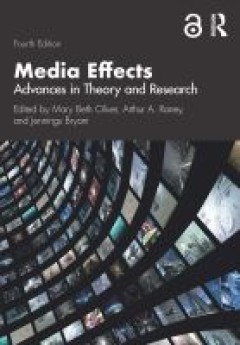
Media Effects
Now in its fourth edition, Media Effects again features essays from some of the finest scholars in the field and serves as a comprehensive reference volume for scholars, teachers, and students. This edition contains both new and updated content that reflects our media-saturated environments, including chapters on social media, video games, mobile communication, and virtual technologies. In reco…
- Edition
- Ed. 1
- ISBN/ISSN
- 9781138590182, 9781138590229
- Collation
- -
- Series Title
- -
- Call Number
- 306.4 MED m

Paradoxes of Interactivity: Perspectives for Media Theory, Human-Computer Int…
Current findings from anthropology, genetics, prehistory, cognitive and neuroscience indicate that human nature is grounded in a co-evolution of tool use, symbolic communication, social interaction and cultural transmission. Digital information technology has recently entered as a new tool in this co-evolution, and will probably have the strongest impact on shaping the human mind in the near fu…
- Edition
- Ed. 1
- ISBN/ISSN
- 9783899428421
- Collation
- 344
- Series Title
- Kultur- und Medientheorie
- Call Number
- 371.3 PAR p
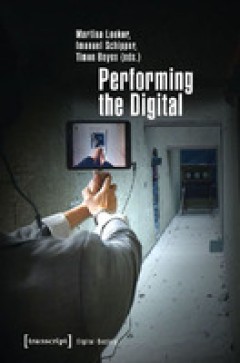
Performing the Digital
How is performativity shaped by digital media – and how do performance practices themselves reflect and alter techno-social configurations? Performing the Digital inquires into the technological terms and conditions of performance and performance studies, and maps and theorizes the registers of performance at work in digital cultures. The contributions range from the performativity of algorit…
- Edition
- -
- ISBN/ISSN
- 9783839433553
- Collation
- -
- Series Title
- -
- Call Number
- -

The Orientalist Semiotics of Dune
Frank Herbert’s »Dune« (1965) is considered to be one of the most successful Science Fiction novels of the 20th century. It introduces its readers to a future universe, in which the production of the most valuable resource of the universe – ›spice‹ – is only possible on one vast desert planet called Arrakis. »Dune« offers many different motifs, including a hero that eventually tur…
- Edition
- -
- ISBN/ISSN
- 9783963178511
- Collation
- -
- Series Title
- -
- Call Number
- -
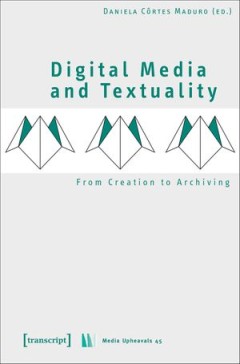
Digital Media and Textuality : From Creation to Archiving
Due to computers' ability to combine different semiotic modes, texts are no longer exclusively comprised of static images and mute words. How have digital media changed the way we write and read? What methods of textual and data analysis have emerged? How do we rescue digital artifacts from obsolescence? And how can digital media be used or taught inside classrooms? These and other questions…
- Edition
- -
- ISBN/ISSN
- 9783839440919
- Collation
- 284 halaman
- Series Title
- -
- Call Number
- 302 DIG
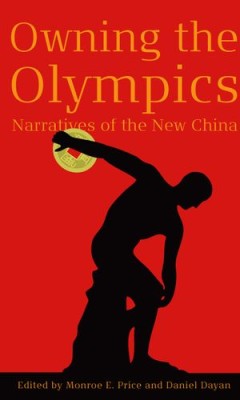
Owning the Olympics: Narratives of the New China
A major contribution to the study of global events in times of global media. Owning the Olympics tests the possibilities and limits of the concept of 'media events' by analyzing the mega-event of the information age: the Beijing Olympics. . . . A good read from cover to cover." —Guobin Yang, Associate Professor, Asian/Middle Eastern Cultures & Sociology, Barnard College, Columbia UniversityFr…
- Edition
- -
- ISBN/ISSN
- 9780472900497
- Collation
- -
- Series Title
- -
- Call Number
- 951 OWN o
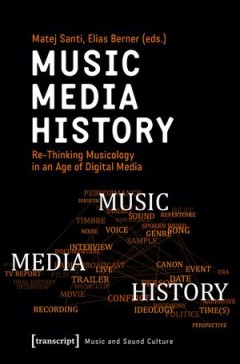
Music - Media - History: Re-Thinking Musicology in an Age of Digital Media
Music and sound shape the emotional content of audio-visual media and carry different meanings. This volume considers audio-visual material as a primary source for historiography. By analyzing how the same sounds are used in different media contexts at different times, the contributors intend to challenge the linear perspective of (music) history based on canonic authority. The book discusses A…
- Edition
- 1
- ISBN/ISSN
- 9783839451458
- Collation
- -
- Series Title
- -
- Call Number
- 780 MUS m
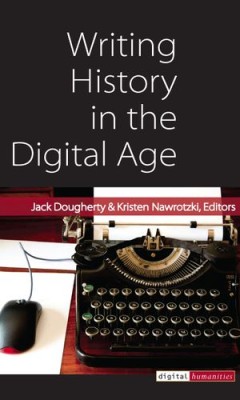
Writing History in the Digital Age
Writing History in the Digital Age began as a “what-if” experiment by posing a question: How have Internet technologies influenced how historians think, teach, author, and publish? To illustrate their answer, the contributors agreed to share the stages of their book-in-progress as it was constructed on the public web.To facilitate this innovative volume, editors Jack Dougherty and Kristen N…
- Edition
- -
- ISBN/ISSN
- 9780472900244
- Collation
- -
- Series Title
- -
- Call Number
- 809 NAW w

Images on the Move Materiality - Networks - Formats
In contemporary society, digital images have become increasingly mobile. They are networked, shared on social media, and circulated across small and portable screens. Accordingly, the discourses of spreadability and circulation have come to supersede the focus on production, indexicality, and manipulability, which had dominated early conceptions of digital photography and film. However, the mob…
- Edition
- -
- ISBN/ISSN
- 9783839452462
- Collation
- -
- Series Title
- -
- Call Number
- -

Digital Roots Historicizing Media and Communication Concepts of the Digital Age
Several of the most known and discussed concepts of the digital age predated the digitalization itself and have been previously used in the “analogue times”. Other concepts were coined for the digital society but have transformed and are continuously transforming over time. This edited book selects some of these concepts and starts a time travel through their history, heritage, reinvention,…
- Edition
- -
- ISBN/ISSN
- 9783110740202
- Collation
- -
- Series Title
- -
- Call Number
- -
 Computer Science, Information & General Works
Computer Science, Information & General Works  Philosophy & Psychology
Philosophy & Psychology  Religion
Religion  Social Sciences
Social Sciences  Language
Language  Pure Science
Pure Science  Applied Sciences
Applied Sciences  Art & Recreation
Art & Recreation  Literature
Literature  History & Geography
History & Geography